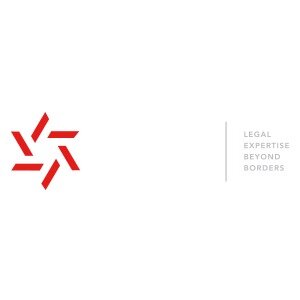Best Securities Lawyers in Qatar
Share your needs with us, get contacted by law firms.
Free. Takes 2 min.
Or refine your search by selecting a city:
List of the best lawyers in Qatar
About Securities Law in Qatar
Securities law in Qatar is governed by a framework designed to regulate the issuance, trading, and management of securities within the country. The Qatar Financial Markets Authority (QFMA) plays a critical role in overseeing securities activities, promoting transparency, and maintaining market integrity. The development of Qatar’s securities market aims to attract both local and foreign investors, ensuring that the financial markets operate efficiently, fairly, and transparently.
Why You May Need a Lawyer
There are several situations where individuals and businesses may require legal assistance regarding securities in Qatar. Common scenarios include:
- Understanding and complying with the regulatory requirements when issuing securities.
- Dealing with disputes related to securities trading or investment losses.
- Navigating mergers, acquisitions, or other corporate restructuring activities that involve securities.
- Ensuring adherence to transparency and disclosure obligations.
- Defending against allegations of fraud or insider trading.
Legal experts can provide strategic advice, manage compliance issues, and represent clients in legal proceedings related to securities.
Local Laws Overview
Securities regulations in Qatar are primarily influenced by the Qatar Financial Markets Authority, which sets the legal framework for securities markets operations. Key aspects of the local laws include:
- Securities Offering: Regulations on the issuance and public offering of securities to protect investors and ensure fair play.
- Transparency and Disclosure: Strict requirements for disclosures to ensure all market participants have access to accurate information.
- Market Conduct: Rules governing trading practices to prevent manipulation and other forms of market abuse.
- Corporate Governance: Guidelines to ensure that companies follow ethical business practices and provide accurate information to the public.
- Dispute Resolution: Mechanisms to resolve disputes efficiently and fairly between market participants.
Frequently Asked Questions
What is the role of the Qatar Financial Markets Authority (QFMA)?
The QFMA regulates and supervises securities activities, ensuring fair and efficient operation of the financial markets in Qatar.
Can foreign investors participate in Qatar’s securities market?
Yes, foreign investors can engage in Qatar's securities market, subject to certain legal and regulatory requirements.
What are the consequences of non-compliance with securities laws in Qatar?
Non-compliance can lead to penalties, fines, suspension of operations, or even criminal charges depending on the severity of the violation.
What kinds of securities are available in Qatar?
Securities in Qatar include equities, bonds, and mutual funds, among others, catering to a wide range of investment preferences.
How does Qatar ensure transparency in its securities market?
Through stringent disclosure requirements and regulatory oversight, Qatar ensures that all necessary information is available to investors.
What is insider trading and is it illegal in Qatar?
Insider trading involves trading based on non-public, material information. It is illegal in Qatar and is subject to strict sanctions.
Are there any support services for investors in Qatar?
The QFMA and other financial institutions provide guidance and resources to help investors make informed decisions.
How can I resolve a dispute with a company about securities transactions?
Disputes can be resolved through regulatory arbitration mechanisms or by seeking legal recourse through the courts.
What resources are available for understanding more about securities in Qatar?
Official publications from QFMA and seminars or webinars hosted by financial experts are valuable resources for understanding the market.
How are securities offerings regulated in Qatar?
Securities offerings are regulated to ensure complete disclosure to potential investors and adherence to rigorous standards to safeguard their interests.
Additional Resources
For further assistance, consider accessing resources from:
- Qatar Financial Markets Authority (QFMA).
- Ministry of Commerce and Industry.
- Local business directories for law firms specializing in securities.
- Financial seminars and workshops conducted by industry experts.
Next Steps
If you need legal assistance with securities in Qatar, consider the following steps:
- Consult with a legal expert: Engage a lawyer who specializes in securities law in Qatar to assess your specific needs.
- Gather required documents: Prepare all necessary documentation and evidence that may be relevant to your case.
- Schedule a meeting: Arrange a consultation to discuss your situation and potential legal strategies.
- Explore your options: Review the legal advice provided and consider your options, whether it involves compliance, dispute resolution, or legal defense.
Lawzana helps you find the best lawyers and law firms in Qatar through a curated and pre-screened list of qualified legal professionals. Our platform offers rankings and detailed profiles of attorneys and law firms, allowing you to compare based on practice areas, including Securities, experience, and client feedback.
Each profile includes a description of the firm's areas of practice, client reviews, team members and partners, year of establishment, spoken languages, office locations, contact information, social media presence, and any published articles or resources. Most firms on our platform speak English and are experienced in both local and international legal matters.
Get a quote from top-rated law firms in Qatar — quickly, securely, and without unnecessary hassle.
Disclaimer:
The information provided on this page is for general informational purposes only and does not constitute legal advice. While we strive to ensure the accuracy and relevance of the content, legal information may change over time, and interpretations of the law can vary. You should always consult with a qualified legal professional for advice specific to your situation.
We disclaim all liability for actions taken or not taken based on the content of this page. If you believe any information is incorrect or outdated, please contact us, and we will review and update it where appropriate.
Browse securities law firms by city in Qatar
Refine your search by selecting a city.
















